It was rad
- frida@artyardbklyn.org

- Jul 18, 2025
- 11 min read
Updated: Jul 22, 2025
We have completed the second week of AYB Summer Session 2025. We were on fire working in many artmaking modalities including movement & dance, sculpting miniatures in clay & paper, writing & illustrating poetry and designing our own postage stamps in our un-air-conditioned studio at BWAC.
We are thankful for popsicles, the breeze off the water through open windows, and each other!
We began with an exploration of movement and tapping into the emotion we can project through action working with M Boucai who has trained extensively in French clowning, theater, and dance.

M recaps: “My AYB class on Movement and Migration was a delightful experiment in what it means for artists from different disciplines to cross-pollinate. My own artistic lineages stem from the pedagogy of Jacques Lecoq, a French teacher who combines elements of athletic training, mask, mime and clown in his training. At the heart of this training is the idea of the neutral mask; a beautiful piece of carved wood that actors use to become “the neutral person” a person that has no history or trauma and knows no fear or anxiety; they simply move forward.



Despite the heat and varying levels of experience doing theatrical work, the AYB students were incredibly open and game to go with me on the journey of the neutral person. A real highlight for me as a teacher involved using the natural beauty of BWAC’s pier to do a famous exercise, The Farewell. This exercise is set on a pier, as the neutral person is running through a crowded waterfront, pushing through a crowd to reach a boat and a loved one before they leave. Sadly they miss the boat and wave goodbye until the boat moves out of sight. It was a gorgeous treat to watch students perform this on a real pier and it was great to hear from them about how great it was to be staring at the ocean, moving with it, becoming one with it. John likened this to the best kind of therapy, and as a teacher, I take that as a real compliment.
Engaged in the exercise The Farewell
In the second half of class, students continued working with this neutral person, going on three separate journeys. The first is standard and involves moving through nature (oceans, beaches, forest, streams, mountains and plains) as a neutral person knowing no fear or pain or exhaustion becoming one with the environment they are in. The second is the same as the first but under extreme circumstances like a giant storm, a forest fire and a giant rock slide on the mountain. Leah and Simone volunteered to do this exercise and blew us all away with their power of expression and their dedication to the exercise; it was truly a sight to behold.
The last neutral mask exercise involved splitting the group in two and having each small group make a little performance around the theme of exodus and migration, creating different obstacles they needed to overcome as a group. The first group did a wonderful surreal job, enacting an escape from a stalled NYC subway train and their journey to get out of the sewer. The second group’s work was much darker, and involved them walking in circles through rings of changing obstacles like mosquitoes and alligators. It was bleak and beautiful and actually had a lot to say about our current political situation without saying anything - it was rad.



In the last portion of class, students created visual art work in their sketch pads inspired by the movement work. It was a delight to see these works at crit; they were so varied but it was also clear how moving in their bodies inspired all this wonderful work! It was a pleasure to work with AYB artists, they were so generous, present and open.”
Use arrow to scroll through drawings from this session.
Tuesday Jacob Rath and Leni Silva were back to lead us on the next phase of work on our site specific doll house sized exhibition Hold Dear for Small House Gallery.

Leni summarizes: “This weeks lesson focused on the present. The things we do choose to bring with us and the person we bring from place to place. I felt so grateful that Jacob and myself were able to have such a safe community to share this lesson with. We started out by recapping briefly on the previous week and bringing up artworks and artist that inspired the concept for this lesson. I talked about Yto Barrada and their works on migration. Linda Stein and her focus on bridging past and present into sculptures that have new meanings.”


Jacob shared the work about objects of importance including a current ceramic work by AYB Artist Vee Tineo, a piece inspired by the experience of their friend Mily Marin who crossed the border from Venezula. When she was detained by ICE, she was given a bag to put all the things she was allowed to take into the country with her. As well as examples of Egyptian miniatures for gravesites.
Vee Tineo, Cruzando la frontera - Mily Marin and Slaughterhouse Model of Meketre
Jacob adds: “In our first lesson, we made artwork about objects people left behind when they moved from one place to another. This week, we focused on objects that people brought with them when moving. Just like the previous week, participants made replicas of these objects, and then wrote the stories behind these objects.


During critique, everyone shared the stories behind the objects they created. Many of these objects that people moved with serve as reminders of formative times in our lives, or relationships we have with others. Evelyn made a replica of a plant that they got from their college's art department that their mom revived for them.

Mia made a replica of her journal that she wrote her memories in, so that she wouldn't forget her childhood when she became an adult.

Adji recreated the metal bracelet that she wears to protect herself (which will be fired next week). While it's customary to wear this bracelet on the right arm, Adji chooses to wear it on the left arm, which shows a balance between adhering to tradition and wanting to do things her own way.”

Leni finishes up: “At critique Elias shared an abstract approach to making this sculpture, by savoring not an object but an action or mantra to live by: being true to one’s self honoring who we have become, looking back to the person we have been in gratitude. This lead to a beautiful mantra we collectively got to chant with Simone at the lead. A reminder to be kind to ourselves: “I love you. I’m sorry. Please forgive me. Thank you.”
Elias Silva, Zine, and Elias Silva, Self, Jacob Rath, Glinda, Lizzenka Gonzalez, Teddy, Asianna Billie, Stuffed Elephant
As we all got to share our pieces and put them in the doll houses you could see “Hold Dear” coming together.”
Use arrows to scroll through zines.
Meridith set up vignettes in our dollhouse model to photograph our work in progress.


With Adji Kebe on Wednesday we dove into water as a metaphoric, symbolic and actual source of movement. Taking inspiration from the film Atlantics directed by Mati Diop, cyanotypes by Diana Sinclair, along with poetry by Anne Carson and Aja Monet we wrote poems which we then illustrated in a mostly blue palette.



Adji writes: “What happens to a group of people when they are displaced? What forces people to move to other countries, and how does that affect us spiritually and psychically? These are some of the questions explored by Senegalese-French film directed Mati Diop, in her debut film Atlantics. In this film, the motif of water is used to represent grief, loss, rebirth, and transformation. Water becomes a spiritual entity that is capable of possessing people. I started my lesson with a quick video of this film so we can start thinking about all the ways water affects us. Afterwards we started to analyze “Anthropology of Water,” which is a poem from Plainwater by Anne Carson. “Anthropology of Water,” is different from many poems. Not only is the structure closer to prose, but it’s cerebral. Anne Carson writes of the many ways water is elusive in nature. Her poem opened doors to a great discussion about binaries, motherhood, gender, punishment, among other topics. It gave people the opportunity to think of the many ways water shows up in the text.

Afterwards we moved on to the structure of poetry using another example from Anne Carson and the poet Aja Monet. I wanted participating artists to see how they can challenge themselves with language. How can they push the boundaries of language and force it to flow like water? We spent some time looking at the structure of poems and how it can be used to convey emotion. We looked at lines, punctuation, the use of alliteration, repetition, and metaphors. How is language being used to paint a vivid image?
Aja Monet, Book cover and poem
Lastly, we used the photography of Diana Sinclair as a visual component. Sinclair is an interdisciplinary artist and researcher who uses cyanotype in her work. AYB artist, Vee, was able to provide for us the science and mechanism behind cyanotype. I genuinely loved every moment of this class. The conversations were amazing. I loved hearing people’s thoughts, opinions, and the connections they were making with the texts. For example, AYB artist, Eden, noticed the theme of religion in Aja Monet’s poems. She spoke about how Santeria was transported to different countries via the Transatlantic Slave Trade. I enjoyed seeing AYB artists take intellectual risks and challenge themselves. I loved hearing them read their own poems as well as the examples provided. The visual artwork created by everyone was comparable to the poetry they wrote. The work was simply phenomenal and I’m still in awe.”






Water is essential.
Liberating the heat from the body when you embrace it. The feeling of agony
is washed away
Water is scenery,
always different wherever you are, but its essence is always the same. It stimulates us emotionally, physically, and spiritually. We absorb its breath-taking vastness and it does the same
Water is a connection,
bringing different cultures, ideas, and treasures for the world to share with each other, and yet we remain divided.
Water is youthful. It must be cared for, nurtured and protected just like a child. The more you try to control it, the more it resists.
And Yet.......
Water is antagonistic
In the eyes of people, it puts life to ahaut. It unfairly bound us to where we stand, and yet it keeps moving.
Water is unbiased,
taking lives and homes, and replacing them with grief and sorrow.
In the end, water just is,
it is as much a part of us as we are part of it.
It is humanity, and humanity needs it.
~ Kevin Anderson










Finishing up the week, AYB Artist Mia Lew taught her very first AYB session. We all loved Mia’s introduction to the history of the postage stamp.

Mia explains: "On Thursday, I taught my first lesson at AYB. I was a bit nervous, for I am an inexperienced teacher, but I knew that the Art Yard community’s welcoming spirit would leave me in good hands and I was still pleasantly surprised. I found ART YARD BKLYN the same way many others did, through a short video on the internet. Ever since my first class, I’ve found an incredible, welcoming, and supportive community of creatives that I consistently look forward to going to.
When I initially decided to teach a lesson on stamps, I was thinking about them a little differently. I’m a printmaker and I cut a small rubber stamp inspired by the exterior of AYB’s home, BWAC (seen below). After speaking to Meridith, I thought I’d teach a lesson this summer where we made rubber stamps inspired by passports. However, due to concerns regarding materials, the lesson migrated to one focusing on postage stamps.

In class we reviewed the origins of postage stamps, the ways they feature artists' work, and how they are used across the globe to symbolize different cultures and locations. We also looked at a map from the Postage Museum showing a stamp from every country. This built a foundation for the artists to use illustration and watercolor to create their own stamp inspired design emblematic of their own identities.
Penny Black stamp, UK, 1840 and Oscar de la Renta stamps, US, 2017

The artists took this prompt in a number of different, unique ways. Watching them create work was incredibly inspiring as everyone was in such a focused, relaxed mood. At my table I observed Delphine draw her signature hands as Simone created a beautifully soft, detailed portrait, and Ed lined his paper to create a comical critique of the American politics surrounding postage stamps and art.



In the end, watching everyone’s work come together during such a thoughtful critique truly brightened my day. It was fantastic to see three new faces at Art Yard create such wonderful work. I loved seeing how Adji, Cindy, and Iris incorporated cultural elements into their stunning work.



Kevin’s painterly watercolors felt like they were telling a story.

Jacob, Declan and Lancelot all had the feel of vintage travel posters!



Rashidah's feels like home.

Luna’s graphic, drawn style of watercolor made her stamps particularly unique. TJ’s line work in watercolor is truly outstanding and it was so lovely to see how her work mirrored Meridith’s.

TJ Edgar, Stamps

Overall, I am so pleased with the work these fantastic artists created and so glad to have taught this lesson. Thank you all for bringing such a generous group, I’ll definitely miss you in the fall when I am off to start college at R.I.S.D.."

Other Art News
Congratulations to AYB Teaching Artist Candy Heiland who has work included in two shows opening tomorrow!
Candy invites us to join her Saturday July 18th at for Elements of Movement at BWAC (481 Van Brunt St, Brooklyn) from 2-5pm and Robots & Lemonade at Honey Badger Motel Art Gallery (145 Sterling Place, Brooklyn) from 7-10pm
This is a reminder to visit The Gallery at 180 Franklin Avenue, Brooklyn to view From A to Z an exhibition of sculpture, paintings, zines and a collaborate ink painted mural by Advanced Studio Artists which explore the concept of literacy either directly or tangentially. Exhibition runs through Monday July 28th!
💛💜💚🩵❤️



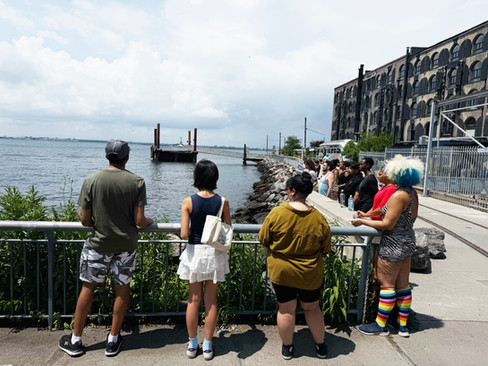






























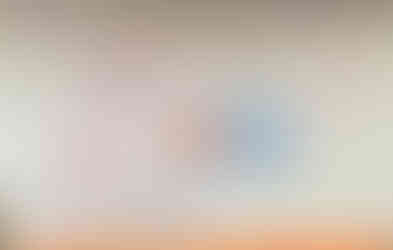

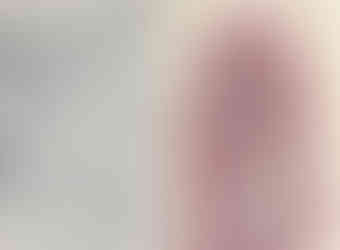





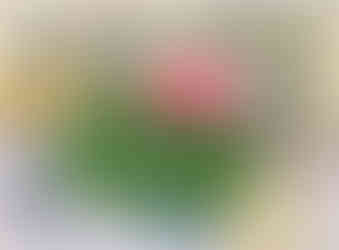
























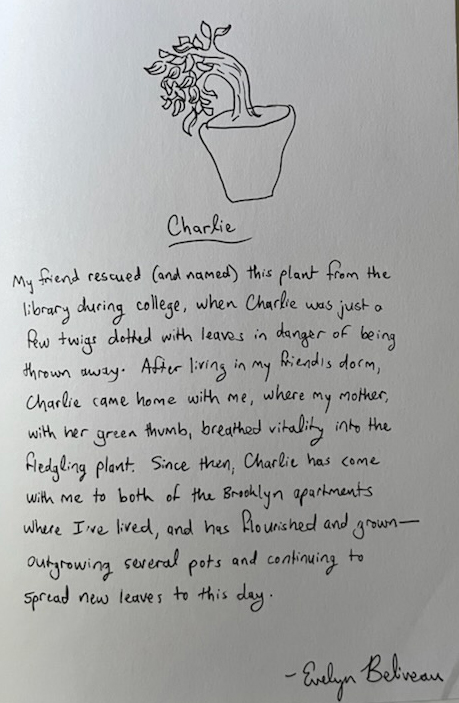

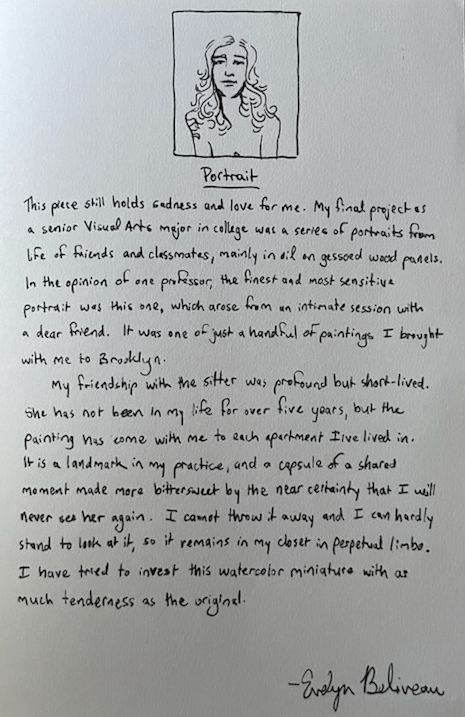



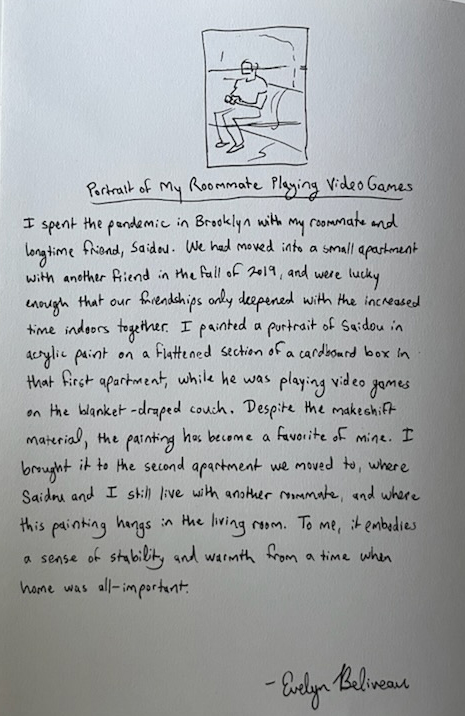























What a great theatrical twist to Monday’s class. I love how limitless and multimedia art yard classes truly can be, it exercises all the parts of the creative brain! Beautiful continuation to the doll’s house gallery lesson, especially loved Mia’s mini journal, reminds me of one I had. Wow Adji Kebe’s class sounds quite fascinating, thinking about the Anthropology of Water makes so much sense in the theme of migration. It reminds me of themes I found while reading Franz Fanon and while having conversations with a phd student I recently met researching France and Colonization. On a more random note I’m also reminded of a YouTube documentary about nyc loft artists in the 70s-90s living without hot water for…